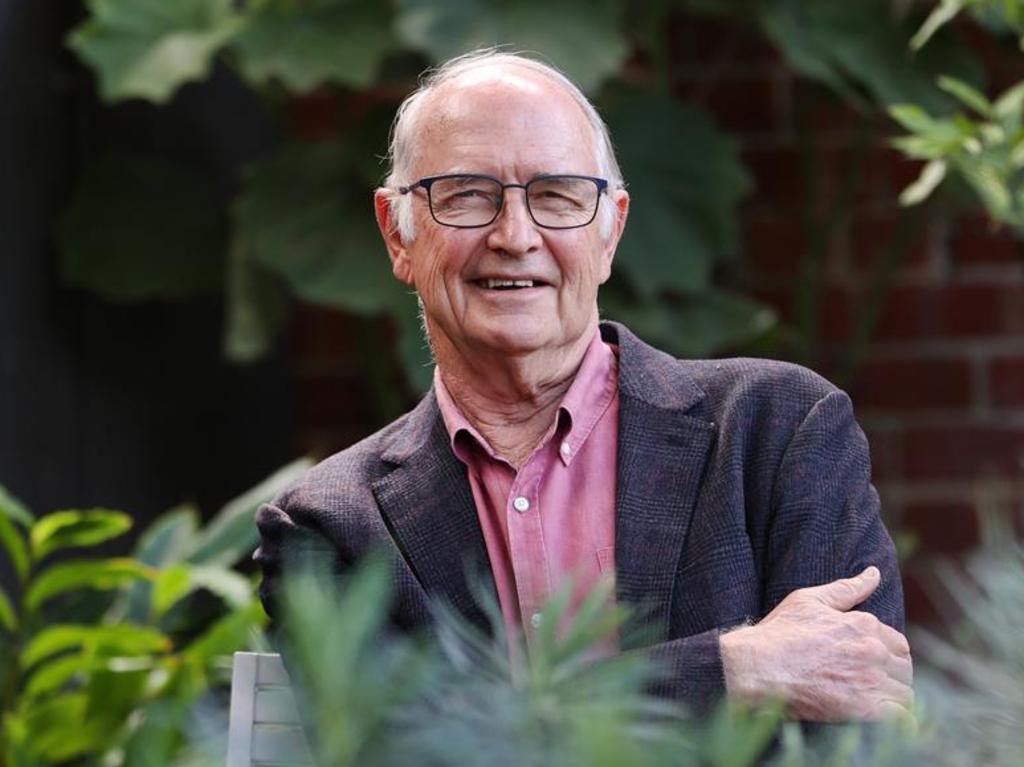Ross Garnaut and Rod Sims propose a $90 per tonne carbon tax on fossil fuel companies, exports to fund green energy
Former ACCC chair Rod Sims conceded a carbon tax that raised $100bn in its first year represented ‘a big hit’ on around 100 businesses.

Anthony Albanese and Peter Dutton are being urged to embrace a carbon tax on fossil fuel imports and on more than 100 coal, oil and gas companies – including Woodside and Whitehaven – in a bid to raise hundreds of billions of dollars to supercharge Australia’s green exports industry and reduce global emissions.
Former ACCC chair Rod Sims and economist Ross Garnaut on Wednesday will warn that in order to become a renewable energy “superpower” Australia must make companies pay “for the damage their emissions impose on others”.
Seeking bipartisan support as they front the National Press Club in Canberra, Mr Sims and Professor Garnaut will propose a “carbon solutions levy” at $90 per tonne applied to 105 companies in Australia that extract fossil fuel and on all fossil fuel imports.
The tax would raise an estimated $100bn in the first year to fund early investors in new, green export industries. It would be operational by 2030-31 at the latest.
Saying the levy would be much more targeted than an economy-wide carbon tax, Mr Sims briefed Treasury on the plan on Tuesday.
“We want to make a transition away from fossil fuels. We want companies to do that because we think fossil fuels (are) damaging the environment,” Mr Sims told The Australian.

“The most basic economics says this is a negative externality that obviously people have to pay for. How can you expect companies to decarbonise if it’s against their very incentive to do so? You’ve got to price carbon. Everybody knows that.
“The entire debate in Australia on the environment is about decarbonising Australia. That will reduce (global) emissions by something over 1 per cent. Whereas what we’re talking about can reduce world emissions anywhere between 6 and 9 per cent.”
The sweetener for voters sceptical about the carbon tax would be the promise that it would fund lower energy bills via additional relief in the realms of $300 per household, plus compensation for the impact of the levy on electricity and gas prices.
An extra $140 per household could be forthcoming by bringing the costs associated with the existing Renewable Energy Target on budget. The levy would also cover the removal of the diesel and petrol excise, which would lower fuel costs by more than 30c per litre, according to the Superpower Institute’s estimates.
Lower prices for fuel and power could help drive inflation down by 1.5 percentage points, Mr Sims and Professor Garnaut claimed, and lead to lower interest rates and cheaper mortgages.
Appealing to the Nationals, who he believed would be “easy” to win over, Mr Sims said the regions would be the big winners.
“We only need a fraction of Australia to want to do this,” he said. “The jobs issue is not an issue. What we’re saying is pay the levy and they (coal and gas companies) keep producing, they don’t stop overnight. We’re not stopping current projects, we’re not stopping new ones … If you want jobs in the regions, what we’re proposing is an enormous jobs creator.”
Mr Sims conceded a carbon tax that raised $100bn in its first year represented “a big hit” on the affected businesses, although he suggested many were profitable enough to cope.
With recent history littered with failed attempts to impose a carbon price, Mr Sims said the targeted tax would be much simpler than the ill-fated ETS of 2012-14, which was “very complicated”.
Professor Garnaut, an architect of the Gillard government’s carbon pricing scheme, will quote published research from the Oxford School of Engineering Science revealing that in a zero-carbon world, Australia emerged as the largest producer of iron metal and steel – more than twice as large as any other country.
“In the zero-carbon economy, Australia is the economically natural location to produce a substantial proportion of the products currently made with large carbon emissions in northeast Asia and Europe,” he will say.
“Our main message today is that export of zero-carbon goods can underpin a long period of high investment, rising productivity, full employment and rising incomes in Australia.”
Mr Sims wanted Australians to recognise fossil fuel use was in structural decline and the country needed to act to replace them with the green industries of the future.







To join the conversation, please log in. Don't have an account? Register
Join the conversation, you are commenting as Logout